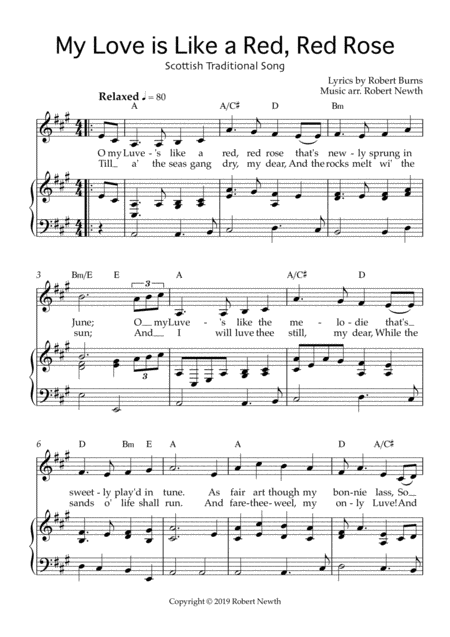Small Ensemble Guitar,Piano,Vocal,Voice - Level 1 - Digital Download SKU: A0.845630 Composed by Traditional. Arranged by Robert Newth. Celtic,Contemporary,Folk,Irish,Multicultural,Wedding,World. Score. 2 pages. Robert Newth #4281925. Published by Robert Newth (A0.845630). With lyrics written by Robert Burns in 1794, My Love is Like a Red, Red Rose (or simply just A Red, Red Rose) is one of the most popular Scottish songs. Set to the traditional tune Low Down in the Broom in 1821, it has since been recorded by several artists including Eva Cassidy, Carly Simon, and Pat Boone. A gorgeous song, it would be an excellent addition to any singer's repertoire.Lyrics to both verses are included along with a suggested piano part, although if you'd prefer, you can play the chords on the guitar or on any other instrument.If you like the arrangement, please do leave a review.https://www.youtube.com/watch?v=fLoP3JBXW9M
